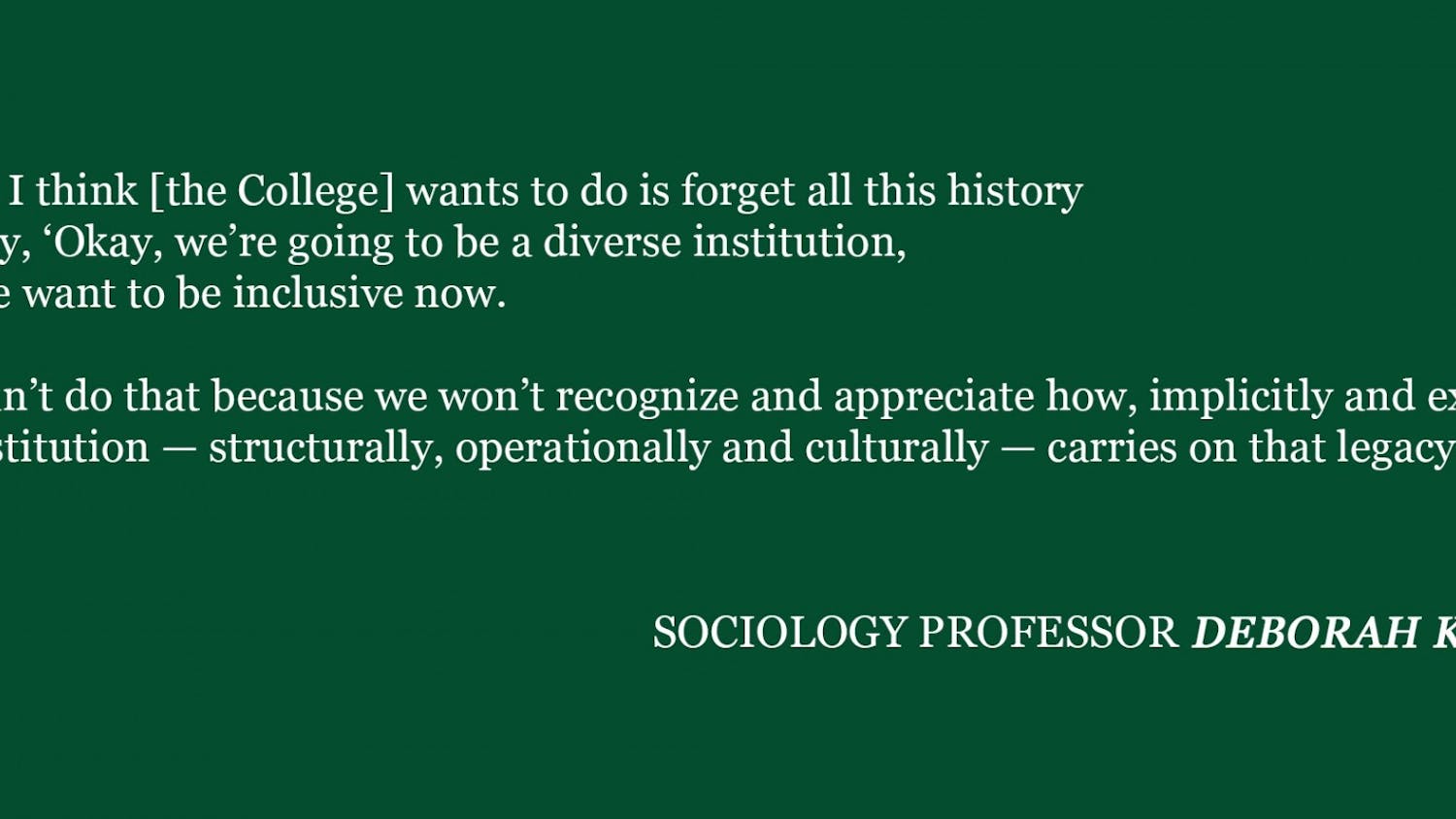Last week, Daniel Bring ’21 and Alexander Rauda ’21 wrote an apology in The Dartmouth in response to the criticism they received regarding their handling of the College Republicans’ attempt to bring U.S. Senate candidate Bryant “Corky” Messner to campus. The vast majority of the criticism they received focused on the inflammatory subject line “They’re bringing drugs…,” which introduced the campus-wide email inviting students and other members of the Dartmouth community to the event with Messner. While their apology is appreciated and long overdue, their removal from positions of leadership will likely do little to ameliorate the polarization plaguing this campus.
My freshman fall, I attended a number of College Republicans meetings. In my experience, it was not a space for internal reflection or self-criticism. The majority of members made it very clear that this was now the party of President Trump, and that any critique of his administration was unwelcome. For example, I was met with snickers by a number of members when I suggested that one possible problem with erecting a wall on our southern border would be filing many eminent domain-related lawsuits. As limiting the role of the federal government — in particular executive power — has historically informed Republican policy positions, I was disappointed by this response. But given a lack of in-power political role models, I was not surprised. I was eventually “purged” from the College Republicans GroupMe, which to this day I have no explanation for, but will assume no ill-will.
I would challenge the new leadership to use their club as both a space for self-reflection and an embodiment of the “big tent” promise of the GOP — which means that those critical of the current administration should not only be tolerated, but welcomed. I hope the College Republicans bear that in mind as they redefine themselves in the wake of Bring and Rauda’s resignation.
While this column is in response to the aforementioned Bring and Rauda article, my sole intention is not to criticize the College Republicans and their insularity. As a right-leaning moderate, I am generally hesitant to publicly criticize “conservative” spaces, which are already the subject of much flippant scrutiny. I mention the College Republicans by name because recent events involving their leadership make obvious the larger problem. The larger problem — which plagues not only this campus but also our country writ large — is a lack of cross-partisan dialogue.
The purpose of college is to move us both physically and intellectually beyond the parochial understandings we inherit during the first 18 years of our lives. The goal of higher education is not to arrive, pay large sums of money and spend four years in echo chambers seeking out only congenial information. Until we drive up to Hanover ahead of First-Year Trips, many of our worldviews have been wholly shaped by our experiences and the opinions of our parents, teachers and religious leaders. Many of us have grown up in political, religious, racial and ethnic bubbles. Even those of us who listen to podcasts and read frequently probably have a narrower understanding of others’ lives than we believe we do.
I was a Great Issue Scholar in-residence, and my floor was home to a diverse set of students — many of whom were international, and all of whom had some interest in the political, economic and social issues which challenge our world. By forging relationships with people from different backgrounds, we were able to have incredibly difficult conversations about complicated issues without assuming malintent. I feel I am a better student, citizen and person for engaging with people whose opinions and experiences differ from my own.
If campus organizations want to stop contributing to polarization, a number of steps can be taken. Gathering member-only meetings that allow for open and honest conversations about their parties’ futures is one step. Campus would also benefit from productive public lectures — which challenge preconceived notions and broaden perspectives. These lectures should be a forum for all people — in particular those who may not think they agree — to listen and raise questions. This does not need to be a battle of “Us versus Them” or a zero-sum game. We do not need more echo chambers. We need a vibrant political culture and we need people of all reasonable reasoning belief systems to come to the table.
McGill is a former member of the Dartmouth College Republicans and a former member of The Dartmouth staff.
The Dartmouth welcomes guest columns. We request that guest columns be the original work of the submitter. Submissions may be sent to both opinion@thedartmouth.com and editor@thedartmouth.com. Submissions will receive a response within three business days.


